war
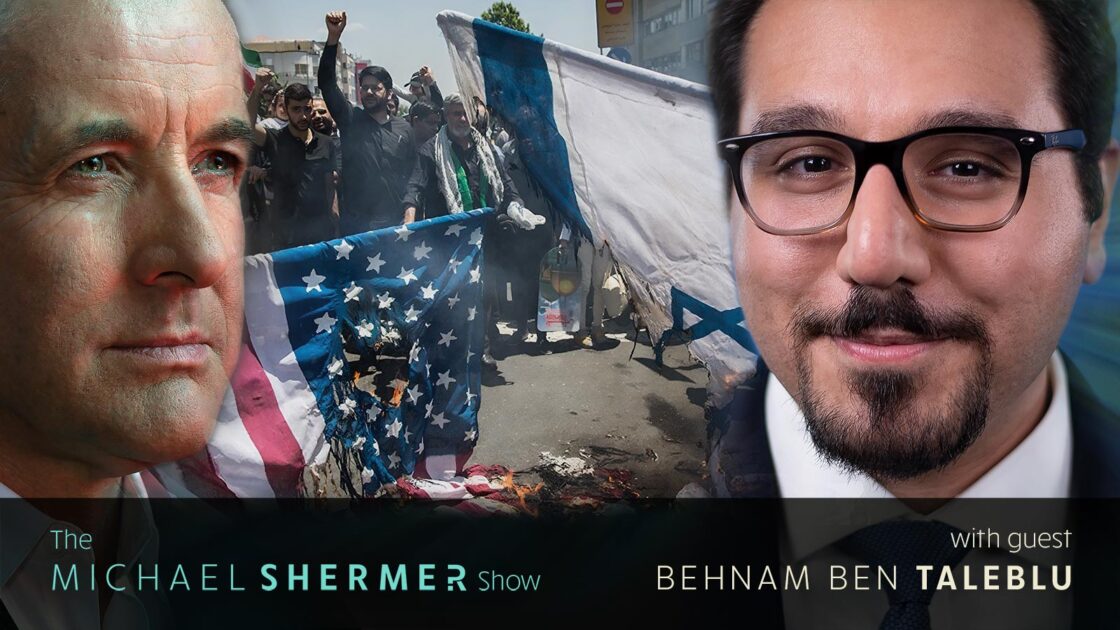
Shermer and Taleblu discuss: • Iran and Hamas • Hamas and Israel • Does Iran really want to wipe Israel off the map? • Islam, Islamism, Jihadism • Sharia Law • Hamas, Hezbollah, and terrorism in the Middle East • Would Mutual Assured Destruction (MAD) work with Iran? • Do economic sanctions work against Iran? • Trump’s strategies in the Middle East: what worked, what didn’t and why • the Iran Deal, and why they support terrorists • U.S. support…
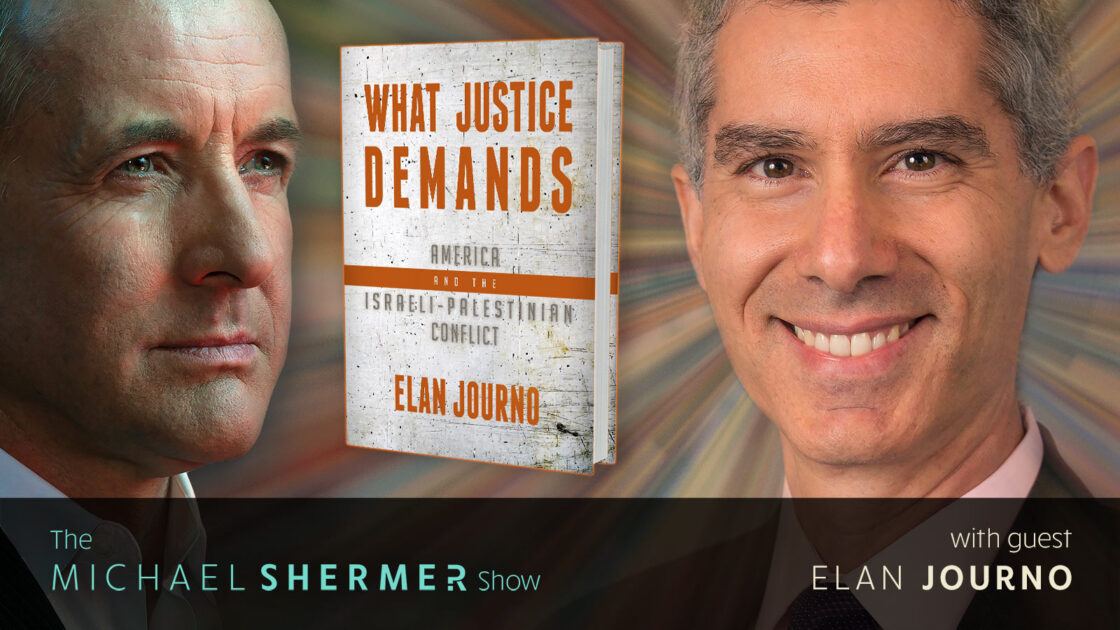
Shermer and Journo discuss: who really owns land? • British Mandate • Theodore Herzl • Zionism, Judaism, and Israel • territorial disputes • Hamas (Islamic Resistance Movement), Hezbollah (Party of God), and terrorism • Palestinian grievances • The Palestinian cause • Is Israel a colonial conquering empire? • Is Israel an apartheid state? • Boycott, Divestment, Sanctions (BDS) movement • Gender Apartheid • Arabs, Muslims, and Palestinians as separate identities • Palestinian Liberation Organization (PLO) • Islam and Islamism •…
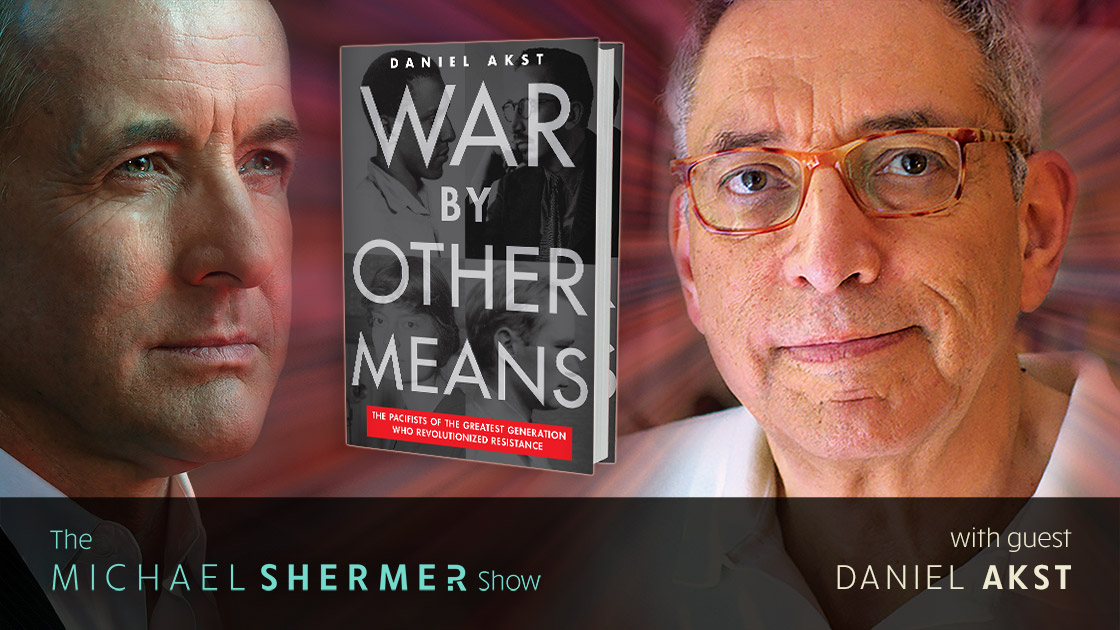
Shermer and Akst discuss: war • the left (old and new) • religious liberals • American Firsters and Isolationists • cluster of heterodoxy: anti-war/militarism, but also anti-racism, anti-capitalism, anti-colonialism, anti-apartheid, anti-power of the state, pro-labor, pro the rights of minorities, individual liberty on matters such as abortion and gender, anti-segregation • internment of 110,000 Japanese-Americans into concentration camps • civil disobedience (Thoreau, Garrison, Gandhi) • non-violent protests • moral equivalency • Just War Theory • Military Industrial Complex • moral…
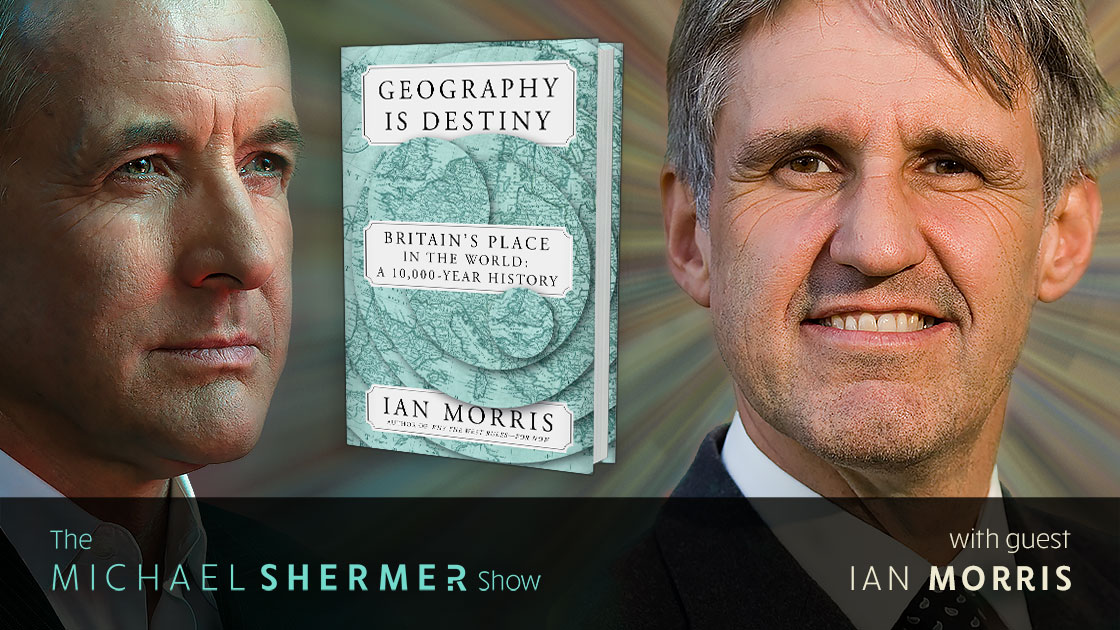
In this conversation on deep time and big history, Shermer and Morris discuss the history of Big History, the future of energy and civilization, China and the future of energy and political power, what Britain was like 8000 years ago, the major transitions in British history, counterfactual history, slavery and the abolition of the slave trade, the role of ideas in history (civil rights, rule of law, justice, etc.), reparations and making right the wrongs of the past.
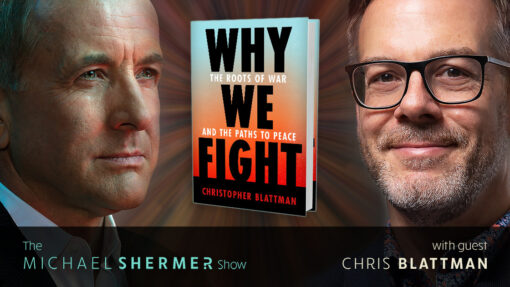
Shermer and Blattman discuss: Putin, Russia, and Ukraine • game theory and violent conflict • 5 Reasons for conflict and war • common elements of conflict • U.S. foreign policy and its consequences • human nature and conflict: are we wired to fight or do environments push us into conflicts? • cooperation vs. competition, and more…
Education reform researcher and advocate Chris Edwards explains the problem with the U.S. public education system and considers possible solutions. PLUS: Michael Shermer speaks with Christopher Blattman about his new book Why We Fight: The Roots of War and the Paths to Peace.
Michael Shermer speaks with Professor of International Relations, Dr. Jacek Kugler, about his Power Transition Theory as it pertains to China, Russia, and Ukraine. PLUS: Robert Zubrin takes a renewed look at his 2015 Skeptic article about the Mystical High Priest of Russian Fascism, Alexander Dugin, in light of Putin’s recent, full-scale invasion of Ukraine.
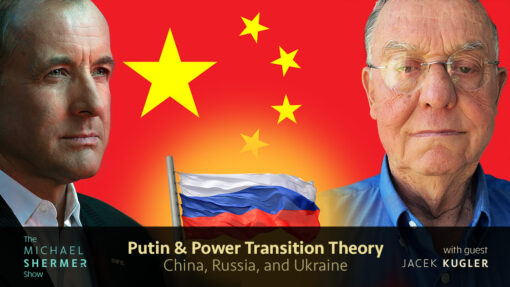
Michael Shermer and Dr. Jacek Kugler, the Elisabeth Helm Rosecrans Professor of International Relations in the Department of Politics and Policy at Claremont Graduate University, discuss Power Transition Theory. According to the theory, developed by Dr. Kugler, an even distribution of political, economic, and military capabilities between contending groups of states is likely to increase the probability of war; peace is preserved best when there is an imbalance of national capabilities between disadvantaged and advantaged nations.
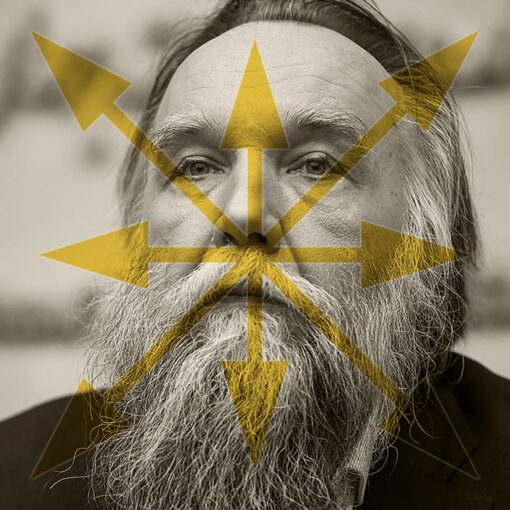
Robert Zubrin takes a renewed look at his 2015 Skeptic article about the Mystical High Priest of Russian Fascism, Alexander Dugin, in light of Putin’s recent, full-scale invasion of Ukraine. It will strike readers as all too prescient.
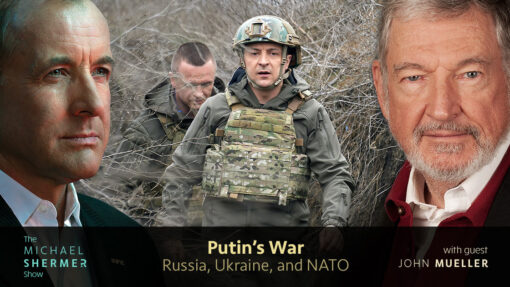
Shermer speaks with renowned Ohio State University political scientist John Mueller about the ongoing crisis in Ukraine and what we might expect from Putin’s Russia in the coming weeks, months, and years, along with Dr. Mueller’s outline for how to end the current conflict and compromise with Putin.
Political scientist and war historian John Mueller argues that Putin’s war in Ukraine could have been avoided and can still be stopped through compromise since NATO was not going to accept Ukraine as a member for decades anyway, and Crimea will be returned to Ukraine about the time Texas is returned to Mexico.
Shermer speaks with renowned Ohio State University political scientist John Mueller, author of The Stupidity of War, about the ongoing crisis in Ukraine and what we might expect from Putin’s Russia in the coming weeks, months, and years, along with Dr. Mueller’s outline for how to end the current conflict and compromise with Putin.
Michael Shermer provides an analysis of Russia’s war on Ukraine. Will sanctions work? Plus, the Skeptic Research Center releases its second report: Who Endorses Race and Gender Conspiracies?
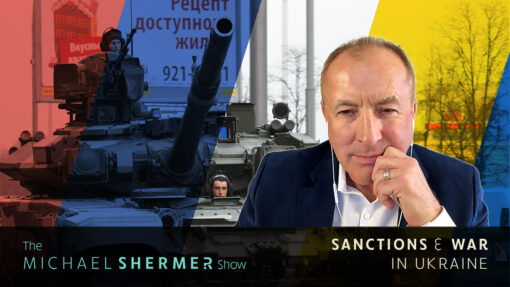
Michael Shermer provides an analysis of Russia’s war on Ukraine. Will sanctions work? This reading is based on his Substack post entitled: “Putin’s Problem: The outlawry of war has forced tyrants to concoct excuses for invading other countries. How should we respond? Evidence shows that outcasting in the form of economic sanctions beats armed conflict.”
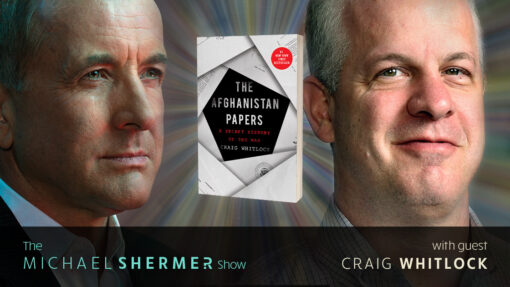
In episode 218, Michael Shermer speaks with Craig Whitlock about his book The Afghanistan Papers: A Secret History of the War which contains startling revelations from people who played a direct role in the war, from leaders in the White House and the Pentagon to soldiers and aid workers on the front lines.
In episode 218, Michael Shermer speaks with Craig Whitlock about his book The Afghanistan Papers: A Secret History of the War which contains startling revelations from people who played a direct role in the war, from leaders in the White House and the Pentagon to soldiers and aid workers on the front lines.
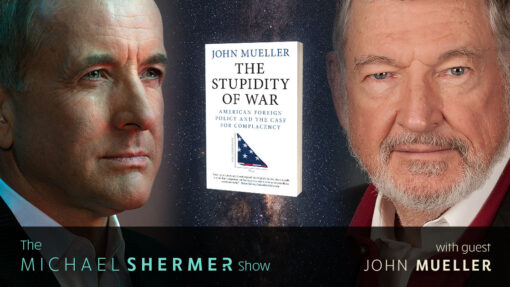
Political scientist John Mueller argues that American foreign policy since 1945 has been one long miscue; most international threats — including during the Cold War — have been substantially exaggerated. Dr. John Mueller is a political scientist at Ohio State University, Senior Fellow at the Cato Institute, and member of the American Academy of Arts and Sciences.
In episode 171 of Michael Shermer’s podcast he speaks with political scientist John Mueller about his new book The Stupidity of War: American Foreign Policy and the Case for Complacency.
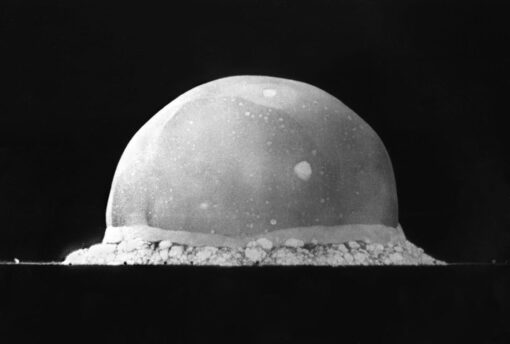
On the 75th anniversary of nuclear weapons, Dr. Michael Shermer presents a moral case for their use in ending WWII and the deterrence of Great Power wars since, and a call to eventually eliminate them.
In SPAS-005, the researchers asked, “Do attitudes about language differ by political party affiliation?” PLUS: On the 75th anniversary of nuclear weapons, Dr. Michael Shermer presents a moral case for their use in ending WWII and the deterrence of Great Power wars since, and a call to eventually eliminate them.
NEXT →




















